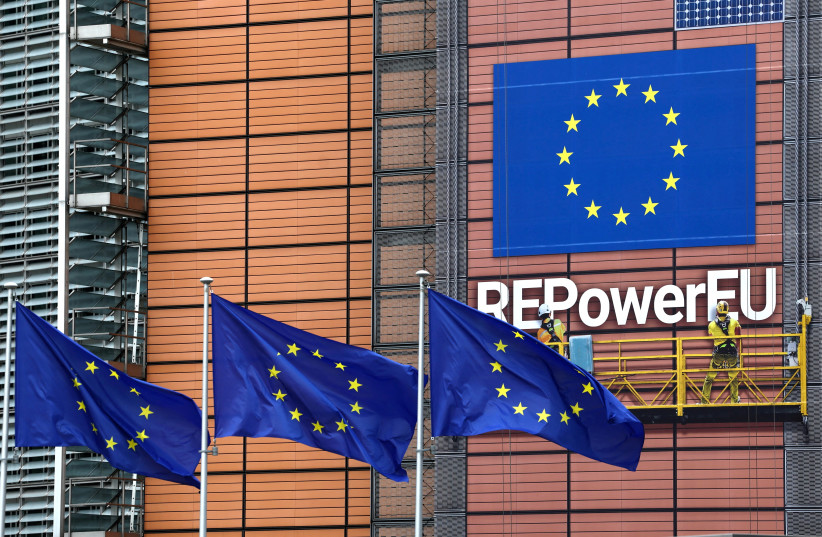The European Union is set to sanction settlers engaged in violent actions against innocent Palestinians, as Hungary dropped its veto of the move.
The United States and the United Kingdom have already issued sanctions against such Jewish extremists.
For the EU to follow suit, it would need consensus from all 27 of its member states.
Hungary had been the sole country opposing such a step. On Monday, Budapest had appeared to drop its veto of the move as EU foreign policy chief Josep Borrell said the Foreign Affairs Council, made up of the bloc’s foreign ministers, could level sanctions against Jewish extremists.
“We failed at the last Foreign Affairs Council having agreement on that. It seems that today all will agree on putting sanctions on both: Hamas and the violent settlers who are harassing Palestinians in the West Bank,” Borrell said.
A diplomatic source told The Jerusalem Post that Budapest had considered it wiser to allow the issue of setter sanctions to move forward in exchange for movement on other issues, such as expanding the list of Hamas terrorists personally sanctioned by the European Union, the diplomat speculated.

EU expected to talk settler sanctions at monthly meeting
The ministers were scheduled to discuss the wars in Gaza and Ukraine. They are also expected to speak separately via video conference with US Secretary of State Antony Blinken and Ukrainian Foreign Minister Dmytro Kuleba.
Issues related to the pending Israeli military operation in Rafah, which has already drawn sharp opinion from top EU officials, and the continuing humanitarian crisis in Gaza will also likely be discussed.
Borrell told reporters that based on a request by two member states, which last week he identified as Ireland and Spain, the foreign ministers would begin a discussion on whether the EU-Israel Association agreement would be impacted by the Gaza war.
The agreement is the founding document that binds the relationship of Israel with the bloc including its free trade agreement.
According to Article 2 of the 1995 document, the agreement is based on Israel’s adherence to human rights and democratic values.
At issue is whether the Gaza war could be cause to change or suspend the agreement, which includes among other items a free trade understanding between Israel and the bloc.
“We are not talking about full suspension of the Association Agreement. This would be something for the [European] Commission to propose,” Borrell told reporters before the meeting.“We are talking about the political dimension based on the respect of humanitarian law and humanitarian principles – Article 2 of the Association Agreement,” he said. The results of the council meeting will be announced later on Monday.
